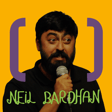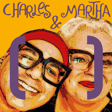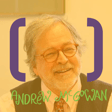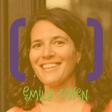
Siobahn Sung: Experience Wonder. See Beauty. Change the World.
How do we keep our spirits high in an increasingly post-human age? How can the classics of western art become more inclusive? How can our art help us move forward from trauma?
Siobahn Sung is a producer at Lincoln Center for the Performing Arts in New York City.
Before that, she worked as a professional opera singer.
CONTENT WARNING: trauma, COVID, natural disasters, discussions of anti-asian racism, explicit language
We talk about: Emotional labor of Korean identity, the challenges of being a professional musician in the age of AI and streaming
the history of white supremacy in classical music performance and how to make the work more inclusive
the recent increases in natural disasters and COVID-related collective trauma
philosophy of beauty and its importance to the human spirit
and of course, the Yankees and the Phillies.
This program is produced in south west philadelphia, in the unceded neighborhood of the black bottom community and on the ancestral land of the Lenape nation, who remain here in the era of the fourth crow and fight for official recognition by the commonwealth of Pennsylvania to this day. You can find out more about the Lenape Nation of Pennsylvania and how you can support the revitalization of their culture by going to https://lenape-nation.org.
Visit this video’s sponsor, BVP Coffee, roasting high quality coffee that benefits HBCU students:
https://bvp.coffee/uncommongoodpod
Visit this video’s sponsor, Poi Dog, chef Kiki Aranita creating sauces inspired by Hawaiian Cuisine: https://poidogphilly.com
we chat to ordinary people doing uncommon good in service of our common humanity.
we are creating community that builds relationships across difference by inviting dialogue about the squishy and vulnerable bits of life.
(un)common good with pauli reese is an uncommon good media production, where we make spirituality accessible to everyone and put content on the internet to help people stop hating each other.
thanks for joining us on the journey of (un)common good!





![BONUS: [moim] Gathering, David Rubenstein Atrium at Lincoln Center image](https://media.zencastr.com/cdn-cgi/image/width=112,quality=85/image-files/62b64321a33e0c0035b4bc2e/a5bd46bd-6072-4365-94bb-c1391a3e5105.jpeg)













